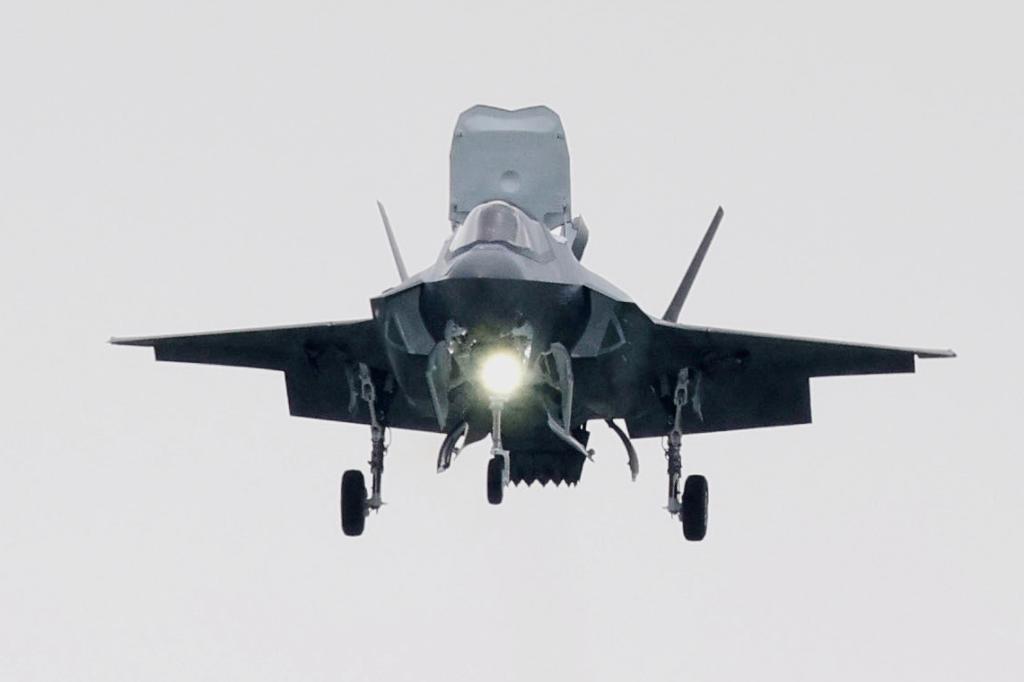The decision of the Government to abandon the purchase of US F-35 fighter jets has left the Spanish Air Force and Navy at the mercy of what happens with the Future Combat Air System (FCAS), a joint project of France, Germany, and Spain aiming to create a combat aircraft but is in serious danger of sinking due to French demands for more power. Additionally, Spain will continue to bet on the 'Eurofighter', but that is a fourth-generation aircraft, to which aircraft like the US F-15, F-16, and F-18 belong, which are starting to be replaced worldwide. The future of Spanish air defense remains under considerable uncertainty.
The problem with FCAS is that France's demand for more power in the project has called into question its viability, to the extent that the fighter jet will be one of the topics discussed on the 29th of this month by Germany and France when they hold a joint Council of Ministers.
The key is that the three project partners - the French Dassault, the German-Franco-Spanish Airbus, and the Spanish Indra - each have a third of the tasks and an equal share of the votes. However, Dassault, which leads the consortium, requested last month to take on 80% of the aircraft - although not 80% of the project - which means that, in practice, the aircraft would be French, just like the F-35 is from Lockheed Martin, even though seven European countries, Canada, and Australia also participate in its design and manufacturing, and only the British company BAE manufactures 15% of the aircraft.
Dassault has been very clear: if it does not have more power and responsibilities, it will leave. Two weeks ago, its CEO, Éric Trappier, described the governance of FCAS as "unworkable" and added that "it is a question of whether the project will continue or not." Already in April, he had stated in the French National Assembly that the structure of FCAS "is not efficient" because "we have to give in and negotiate everything."
Trappier's demands are not limited to power sharing. They also include the aircraft that the project partners will purchase. Last month, displaying a unique verbal ferocity, Dassault's CEO accused Belgium, which has just joined FCAS, of "mocking" the other members by deciding to purchase 11 F-35s in addition to the 34 already ordered. Trappier said that "some partners" want to "benefit from the jobs created by the program (...) while buying from the US". The Defense Minister of that country, Theo Francken, responded by announcing that "we are reassessing our participation" in the European fighter and that, "as a founding member of NATO and the EU, a loyal ally and host of their headquarters, we cannot accept arrogant businessmen giving us lessons." Brussels has invested 300 million euros this year in FCAS.
In this context, Spain's abandonment of plans to acquire the F-35, news revealed this Wednesday by EL PAÍS, takes on a new significance. The Ministry of Defense did not respond yesterday to an email from EL MUNDO inquiring whether the French Government or Dassault had asked Spain to suspend plans to purchase the US aircraft, and requesting the position of Pedro Sánchez's Government in the controversy. In any case, the decision to renounce the F-35 leaves a gap of decades for the Spanish military aeronautics. US aircraft are usually delivered about five or six years after being purchased, which means they could arrive in Spain from 2031 onwards. But FCAS will not be operational, if all goes well, until 2045. That means two more decades of service for the 'Eurofighter', in case FCAS ever takes flight.
The project crisis also threatens the Government's plans to turn Indra into a 'national champion' in defense that can compete in the new European context to strengthen the continent's defense due to the lack of interest from the United States in NATO. The company led by Ángel Escribano stated to EL MUNDO yesterday that "Europe needs a sixth-generation combat aircraft, and Spain must be part of the project, asserting its role in it." Two weeks ago, at the results presentation, the CEO, José Vicente de los Mozos, stated that "I will not comment" on Dassault's remarks.
Dassault's verbal blows seem to have cooled Airbus's interest in FCAS. The CEO of the defense division of the latter company, Michael Schoellhorn, stated that "the program will have no chance of success without a political and industrial agreement by the end of the year," and the CEO, Guillaume Faury, indirectly addressed Trappier by stating that "if an industrial partner is not satisfied with the governance, it must decide whether it wants to continue or not." Airbus may be starting to lean towards another fighter jet project, the Global Combat Air Programme (GCAP), from the UK (BAE Systems), Japan (Mitsubishi Heavy Industries), and Italy (Leonardo), which, according to its supporters, has a more business-oriented and less political approach than FCAS.
For the most pessimistic, France is carrying out a 'controlled demolition' of the project, just as it did three decades ago with the 'Eurofighter', from which Paris withdrew to develop its own fighter jet, the 'Rafale'. Others see a financial move typical of Donald Trump: that Germany and France continue to contribute one-third each to the program, but France ends up with 80% of the work.
